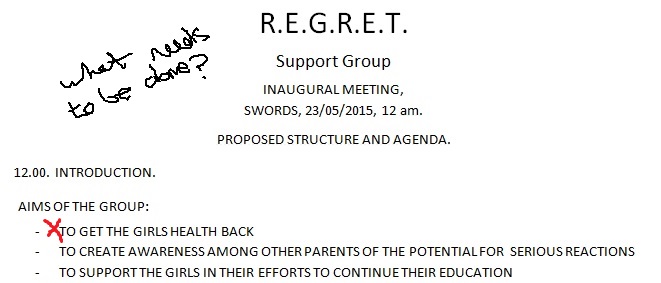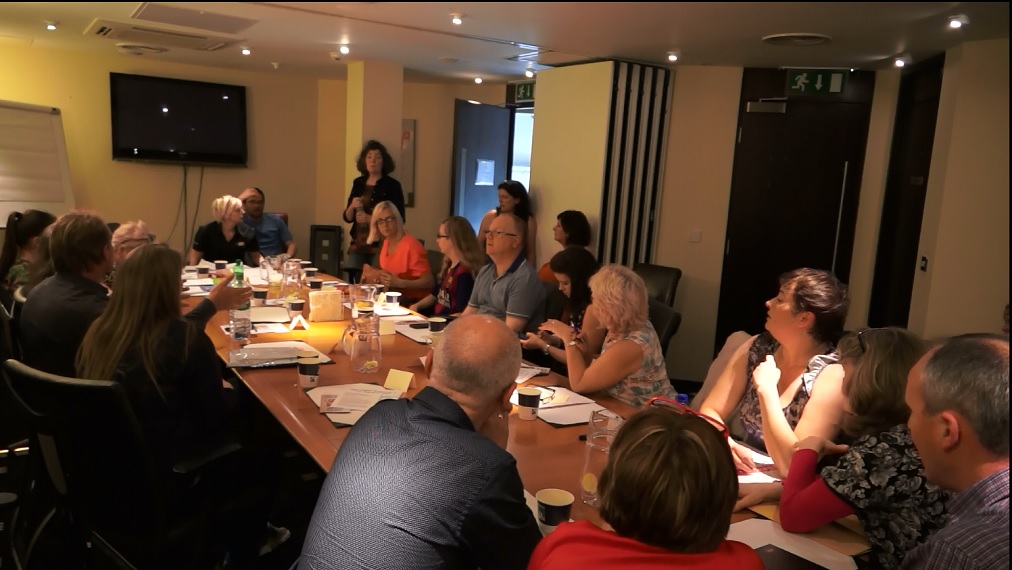Last weekend in Swords, Ireland, the R.E.G.R.E.T. Support Group was launched by parents of chronically ill teenage girls. They blame an injection the girls received at school as the cause of their daughters' illness. The drug in question is called Gardasil and is being marketed as an anti-cancer vaccine. R.E.G.R.E.T. is an acronym for "Reactions and Effects of Gardasil Resulting in Extreme Trauma".
Members of ten families from all over the country came together to share experiences and express their exasperation at the inability of health authorities to recognise the pattern of serious adverse reactions being suffered by children who, up until receiving the Gardasil injection, enjoyed an active healthy lifestyle. One of the main complaints raised at the meeting was that the information provided by the HSE (as part of the
'informed consent' process) is extremely misleading, particularly with regard to how safe the vaccine is. A high incidence of serious reactions from Gardasil have been reported in the U.S since it was released there in 2006. Even the drug manufacturer's own clinical trials reveal a 1 in 40 (2.5%) incidence of a serious adverse reaction*, yet Irish parents are still told by the HSE that Gardasil is 'very safe'.
Although its cancer-preventing properties have never been proven, the HSE insists that the benefits of Gardasil outweigh the risks and even claim that it has been 'fully tested', This is despite the limited safety testing that took place as a result of this "life-saving vaccine" being fast-tracked through the regulatory approval process. HSE did not inform parents that Gardasil contains genetically engineered non-human recombinant DNA, the effects of which are unknown and unpredictable when injected into a human host.
The types of long term debilitating health conditions reported by Irish parents have in many cases meant that the girls are unable to continue their education in school. Because of the nature of the chronic illnesses, Irish doctors and consultants are unable to offer any effective treatment. With 1 or 2 rare exceptions, these medical professionals dismiss these serious reactions as unrelated to Gardasil and merely coincidental. When tests come back negative, parents are often told that their girls simply have psychological/psychosomatic problems.
The group also launched the website www.Regret.ie, where parents can read first-hand accounts from Irish victims and their families. The site is also a focal point for raising awareness among other parents whose daughters have yet to receive the injection with the schools vaccination program set to resume in September.
The group can be contacted at Support@Regret.ie
*According to the FDA a serious adverse event must fit one of the following criteria: death, life-threatening, hospitalization, disability or permanent damage, congenital abnormality/birth defect, or the requirement to intervene to prevent permanent impairment.
.









